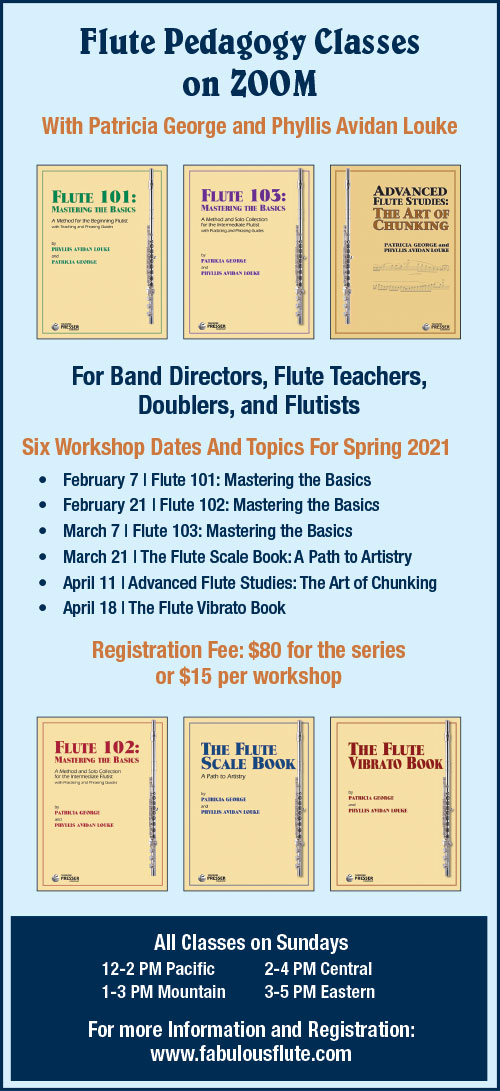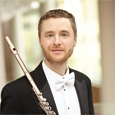I wish to offer sincere and heartfelt feelings of thanks and gratitude to all my teachers, mentors, colleagues, friends and family members who helped me on my musical journey. I could not have achieved any measure of professional success without their support and guidance.
1. No One Will Insist That You Become a Professional Musician
“If you really want to do something, you’ll find a way and if you don’t want to do it, you’ll find an excuse.” – Jim Rohn (entrepreneur and motivational speaker)
Don’t listen to the naysayers: a career in music is absolutely a viable choice, so long as you are serious about it. Interestingly, it takes many more hours and years of training and practice to become a professional musician than to be a doctor, lawyer or engineer. That being said, most people I have encountered in my life, including even some audience members I have spoken to at Minnesota Orchestra concerts, do not understand that a profession in music is a real job. I cannot tell you how often I have been asked what my full-time job is after telling someone I play flute in the Minnesota Orchestra. Musicians generally do not receive the same level of understanding, affirmation and validation given to those pursuing those aforementioned careers.
It took me longer than I care to admit to realize that no one was going to hold my hand along the journey to fulfilling my dream of becoming a professional flutist. Most of the time, you will have to commit to supplying your own motivations and have the self-discipline to structure the time needed to accomplish your goals.
The examples of successful professionals that young musicians look up to may obscure the fact that the road to a stable living in our field is often jagged and rocky. You will experience some wonderful highs after thrilling performances or after being offered a well-paying gig, but at other times you will scarcely feel like you deserve to be considered a working professional at all. Setbacks inevitably will happen to you, whether it comes in the form of a bad audition, getting passed over for a part you wanted, or lack of gig offers. It will be tempting to get mired in your lack of success. Remember that hard work is not always uniformly rewarded. Fortune has a tendency to drop in intermittently and unexpectedly. You must forge and sustain your own inner resilience to carry on.
In the end, make sure you are in touch with the real reasons you are pursuing a career in music. It’s okay if these reasons and values change over time. Your values will ultimately guide you to the right path.
Secret Tip #1: When asked what you do for a living, immediately label yourself as a professional and identify what you do as work. I will usually say something along the lines of “I am a professional flutist and I work in professional orchestras for a living, as well as doing some teaching and freelance work.” This typically wards off the always obnoxious what is your day job question and implies to the listener that your work is a real job. You can then go into more detail about the kinds of work you do as the conversation continues. Avoid using the words play or perform – “I play flute” or “I perform at weddings” – until later in the conversation.
2. Determination Will Take You Further than Talent (A Little Luck Helps Too).
“Give the world the best you have, and the best will come to you.” – Madeline S. Bridges (poet)
Many people have told me that I am talented. Even if they know about the many hours I practiced over many years as well as the cost and time spent on obtaining two music degrees and taking many, many auditions, they will still insist that I also required that rare element, mysteriously bestowed upon the few, called talent to succeed.
My personal experience, however, is that whatever talent is, it didn’t take me very far on its own. Over and over again, I alternately surpassed and was surpassed by those I judged of possessing lesser, equal and greater ability to myself. The ambitious artists offering that which is consistently well-manicured and exciting will gain greater rewards and recognition over time. However, there is always an element of luck at play in who gets chosen for any given position or gig. Even a top performer can stumble in the moment. The musical tastes of contractors and audition committees will differ (and that’s okay), and at other times one must simply be in the right time and place to be the one offered a job.
One thing I have noticed is that those who succeed, in any field of human achievement, can credit a mindset of steady and persistent determination. This mindset allows them to notice when life is throwing them an opportunity (i.e., making their own luck) and also provides them the resilience to keep going when an opportunity doesn’t work out. This motivates musicians to practice even when they don’t feel like it. This is what drives someone to have the courage to ask the advice of a mentor, be open to criticism, challenge themselves, and to continually seek to improve in ways small and large over time.
What is the source of this courage and determination? There has been quite a bit of research done in recent years on such topics, some of which I will reference below. In summary, it turns out that early successes validated by those we look up to can have a big impact. This causes us to take on identities, at times subconsciously, such as “I am a flutist,” which in turn motivates deep observation of the highly successful examples of those in our chosen identity group so that we can be like them. This process is probably what results in what society generically calls “talent.” It is a process of mindset as much as it is anything innate or inborn.
Consider other identities that might result in the attitude and behaviors of determination: I am a determined person. I am a hard worker. I am someone who has a wide variety of interests. I am detail-oriented. I am a life-long learner. I am a curious person. I am a listener. What else could you add to this list? It could go on forever, no doubt. Make a list of identities which resonate strongly with you. Having these firmly defined to yourself will bolster your sense of resilience, as what others say or think about you will cease to matter.
For further study on the crossroads of talent, success, mindset and luck, I suggest reading Malcom Gladwell’s book Outliers, research about the relative age effect, The Talent Code by Daniel Coyle, Mindset by Carol Dweck, The Biggest Bluff by Maria Konnikova, and similar books. I think you will find their insights invaluable to your own journey and when helping others with their journeys.
Secret Tip #2: We each have the unique privilege to choose our identities. Use this knowledge to your advantage to help focus your motivation. We need not be limited by what we were told about ourselves as young children, or what society or popular culture tells us we should think of ourselves. If you have control of your mindset, you will be in a position to take advantage of the situations and opportunities that luck provides.
3. Making Music is Not (Only) About You. The Three C’s of the Professional Artist.
“The miracle is this: the more we share the more we have.” – Leonard Nimoy (actor)
I am one hundred percent certain that the primary reason I wanted to be a professional musician is because I wanted to play the music I felt in my heart. Years later, it is still the primary reason I take the flute out of its case every day. I did not truly care what effect my music had on other people and had little interest in changing anyone’s life with my music. It was really because for me, making music was about expressing my feelings and my own internal experience. It was how I could better know myself.
Imagine, therefore, the rather large sense of disillusionment I faced not long after I began my job with the Minnesota Orchestra. It turns out that much of the job is being told to play music differently than I would choose to play it, or playing music that I would not normally choose to play, given my own tastes. I would notice that at times it was almost an emotionally empty or lonely experience, despite playing with 90 colleagues for an audience of 2000 people. Sometimes there was a great flute solo or fun flute part to play, but even in a Brahms symphony there are many more moments of the flute serving a functional role rather than having command of the emotional content of the piece. I had to come to terms with this realization: it’s not about me. At least, it’s not only about me.
All professional artistic pursuits are ultimately an intersection of three elements that I call The Three C’s. Communication, Connection, and Community. Instrumental music as a vocation magnifies the need to act with intention regarding the Three C’s. Why? Because it is the most abstract of all the arts, lacking words and physical substance. Any Shakespeare play has clear messages and meanings as written by the playwright, articulated by actors, and given visual life via staging and production. Instrumental music is simply a collection of sounds intended by the composer, doled out over time, and granted inflection and intensity by a musician. Its meaning is ultimately an indistinct construct of the listener.
We learn to play our instruments to the highest level so that we have the ability to communicate what is in our hearts and what the composer intends. We communicate in order to have a human connection with fellow human beings and the world around us. Some say musical communication is a spiritual bridge all the way to the soul. These connections contribute to the well-being of our communities. These communities, in turn, provide the opportunities and support for music to be a viable profession and vocation.
If you decide to make a serious go at a performing career, remember that jobs in the music field do not exist only to serve you and your needs. The relationships between artists and their communities are both reciprocal and symbiotic. Each need to contribute to the other’s health and wellbeing.
Secret Tip #3: Do you remember times when you have felt totally uplifted and transformed by a piece of music? When you perform, keep in mind that someone in the audience is experiencing your music in exactly that way, even if you feel otherwise. It truly is a form of magic. Let their joy be yours as well – sometimes this is just what you need uplift your resilience and emotional fulfillment.
4. You Will Have (at least) Two Jobs: Keeping Your Playing in Order and Keeping Your Business in Order
“A problem is a chance for you to do your best.” – Duke Ellington (musician)
You will be told truthfully many times that mastery of playing your instrument is imperative, and without it, success will elude you. Those voices are correct. What is said less often is that you will have to continue to devote regular time toward maintaining and improving that craft for the duration of your career. I used to think that once I got really good, that I would be able to maintain that ability with little continued effort. Not so. If you don’t use it, you will eventually lose it. Bad practicing habits, poor health, or inattention to good form has caused injuries and led to early endings of many promising musical careers. The best pros all develop good habits and routines to keep their playing in top form for decade after decade.
I have also learned that the journey of improvement is never really over. That journey, for me, has been one of continually having greater and more refined awareness and control over the physical aspects of playing my instrument and the sounds that result. Many things that I did by feel, muscle memory, or instinct in the past, I can now very clearly describe and execute with an accurate sense of mind/body awareness. I am not sure anyone would say that I sounded worse in the past compared to now, but I take a lot of comfort in having a security and control over my playing that is the result of continued growth of awareness. This has also improved my confidence as a flutist over time.
Going into music as a profession also means that you are now entering the business world. The skills you will need to navigate the music business are as important as how well you play your instrument. In fact, you are your own small business now; an entrepreneur some would say. This means every skill you possess, including how you play your instrument, are your products and services on offer. Ensure that these skills are competitive, because the music business is a competitive marketplace.
Do you have skills as a writer, a composer or songwriter, or as an arranger? Do you have knowledge of recording equipment? Are you good at logistics and planning? Building websites? Are you interested in instrument repair or design? How about teaching? Can you play multiple instruments? If you have these skills or are at least casually interested in building these skills, any of them can be put to good use to earn money while working toward a performing career. Cultivating skills like these, as well as others that may not even be music-related, will constitute the garden of your abilities. A healthy and beautiful garden has a wide variety of plants, even if some of them are more prominent than others. All of your skills can enhance your performing career and create rewarding opportunities you didn’t even realize were possible.
The networks you build with fellow students and future colleagues are extremely important. Don’t make the mistake of being a practice room hermit. Opportunities will be painfully limited if no one knows who you are or what you are good at. This can be tough one for those of us in the club of the shy, of which I count myself a member. This is the time to push the boundaries of your comfort zones; any failures you may be afraid of in this area are not failures unless you retreat and choose not to learn from them.
Businesses must be built on the foundation of solid and proven financial practices. When you get paid, be sure you pay yourself first. That means setting aside money for an emergency fund to get you through ups and downs, as well as for retirement. One dollar saved and invested in an index fund when you are twenty-two years old will be worth seventy-two dollars when you reach retirement age. Seek out information and advice about how retirement funds work and how financial security and independence are achieved. There are many books, websites, blogs, vlogs, podcasts and more that can shed light on these topics. Ask your colleagues in the middle and late stages of their careers how they set up good personal financial habits. Many small decisions, made wisely, accumulate over time to create a financially viable and perhaps even lucrative career.
Secret Tip #4: Systems are better than goals. Although goals are important and can keep you moving in the right direction, it is the systems you put in place in support of your goals, such as a practice plan or a budget, that will actually get you there (or not, if the system is not functional). Take the time to ensure you have systems in place that work for you and are scaled correctly to your goals.
5. Music Degrees Often Lead to Viable and Rewarding Non-Performance Careers.
“I may not have gone where I intended to go, but I think I have ended up where I needed to be.” – Douglas Adams (author)
When I entered music school, I was certain that I wanted one thing and one thing only: to get into a big-time symphony orchestra – or, at least one that paid enough so I had something resembling financial security. Voila! It happened! Consider me a prime success story. Dreams really can come true. What that leaves out is that it took me 11 years and dozens of auditions from starting school to actually landing that job. There were many times during those 11 years that my career path nearly shifted course entirely. Like most currently active professional musicians, I spent time in my early career doing other full-time or part-time jobs either outside the profession or in related fields to make ends meet before I could make a stable living from musical pursuits only. Any of those other jobs could have easily led to a different career path. One of those paths nearly led me to hang up the flute altogether. Shortly before I won my position with the Minnesota Orchestra, I had decided that I was only going to keep taking orchestra auditions for one more year before putting aside that game and focusing solely on a freelance career. My life would look very different than it does now. But you know what? I would still be happy. I would still consider myself to be a success if I had ended up with a primarily freelance career. The most important thing I learned in those 11 years was that there are many paths to happiness, success, and a rewarding life.
If you go into music school, give yourself permission in advance to change your goals. Be honest with yourself that what you value now and who you are now will not be the same in two years, in five years, and definitely not in ten years. You don’t even have to become a professional musician if you have a music degree or multiple music degrees. I have friends who became successful doctors, lawyers, architects, real-estate agents and more after getting a music degree. Music still enriches their lives, and they play a fundamental role in the interdependent ecosystem of artist and community relationships.
I have seen many, many musicians take advantage of the cultivated and broad skill set I talked about earlier which led them to careers in the music industry at large that they absolutely love. One is a terrific flutist but has also been the recording engineer for Grammy award-winning albums. Another is the primary headjoint maker at a major American flute company. Others have started their own music publishing houses, music schools, become contractors, created their own concert series, entered arts management, and more. There are dozens of career paths out there for those with music degrees, and you just might find yourself making a rewarding difference in the world in a way you did not expect.
Secret Tip #5: Becoming a strong performing artist should be your primary focus in school, but don’t let it become so consuming that you don’t nurture other equally necessary aspects of yourself. Remember to give time to other needs, interests, and abilities. What you learn will enrich your music making and give added life, vibrancy and personality to your performances.
6. It doesn’t have to be fun, but it should be satisfying
“I can do hard things. Doing hard things has intrinsic value and will make me a better person, even if I fail.” – Brandon Sanderson (author)
I love reading books and am a big fan of science fiction and fantasy in particular. One of my favorite authors is Brandon Sanderson. The above quote, as well as the title of this section, is taken from advice he offers to aspiring writers. He was referring to the process of becoming a professional novelist, as most people who try their hand at that do not succeed. I think it equally applicable to the process of trying to become a professional musician. Not everyone will succeed, but to define success that narrowly is to miss the point.
A popular saying goes that if you love your work, you will never work a day in your life. There is wisdom here, but I think it risks giving the wrong impression. There is a perception that a job in music is all fun all the time. As someone who has a great job, I can tell you that sometimes a job is still, well…a job. Music is an amazing art form, but the music business is complicated. I often spend hours and hours practicing music that I did not choose to play and that I find little connection with. A lot of that practice is not fun. Workplace politics and dysfunctional relationships with colleagues can diminish enjoyment in any working environment.
What then do I find satisfying about my work? I find satisfaction from doing something that I am good at while getting paid a living wage. I find satisfaction from playing my part to create beautiful music. I find satisfaction in promoting a meaningful and regenerative art form to our community. I find satisfaction in working with the staff and board members of the Minnesota Orchestra so that its mission grows in significant ways in our community. I find satisfaction in having time to devote to my other interests, creative and otherwise. I find satisfaction in the balance of my life.
In other words, seek to build a balanced career. What that means for each person will be different. I daresay that you will ultimately find balance to be satisfying (harmonious, to turn a phrase), and that will allow your work and your life to be fun.
Secret Tip #6: Learn from the other creative arts. Watch or attend masterclasses by accomplished professionals from other artistic fields to study how they master their crafts, such as acting, dance, architecture, creative writing, and the visual arts. You will find there are many parallels to music that can help you on your musical journey.








